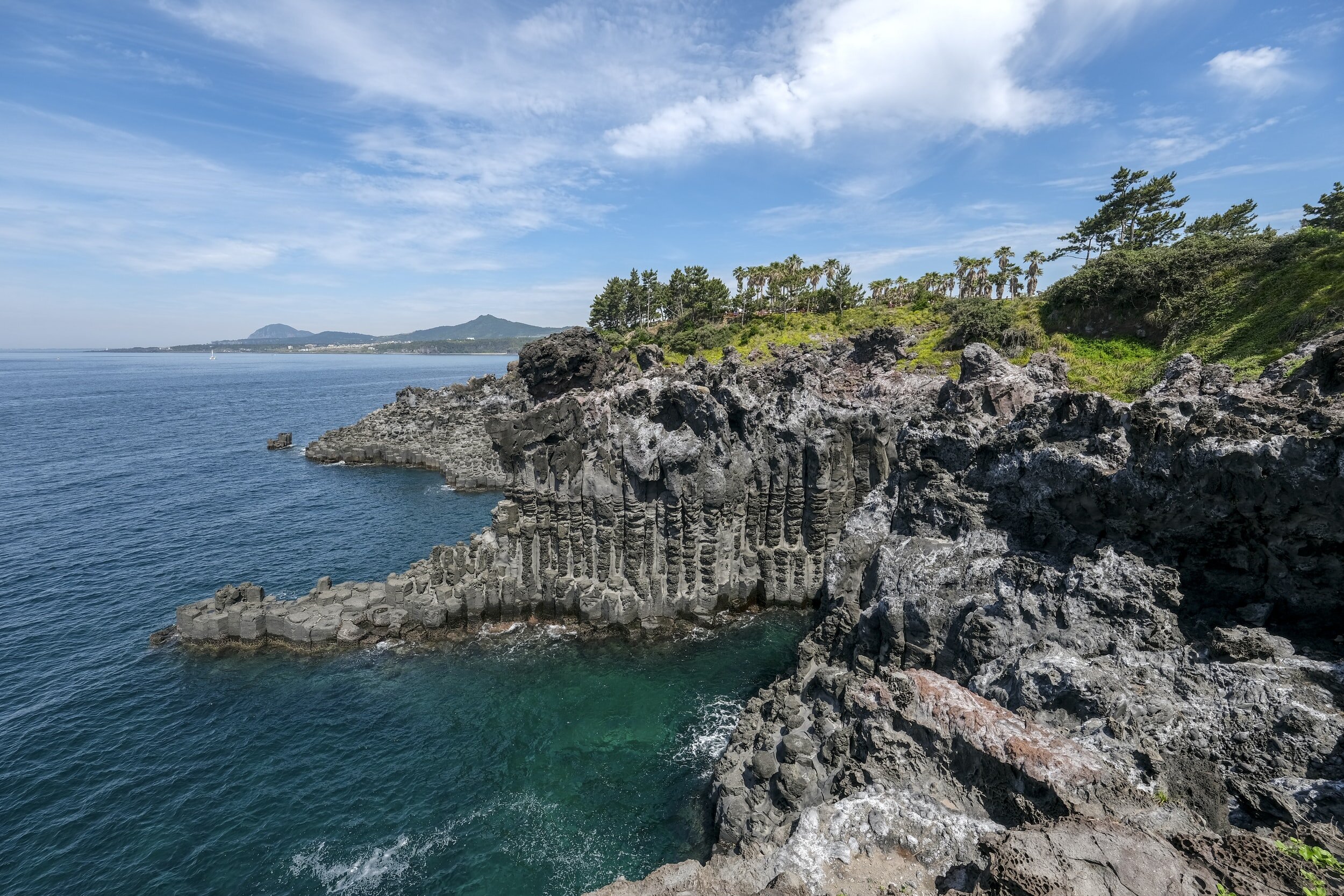Climate Change and COP26 as Seen from South Korea - “Words Into Actions”
In the run up to COP26, we are continuing to investigate inspiring actions and examples on climate change from young people in different parts of the world. We want to understand better how COP26 looks from their perspective, and what they are hoping for from the climate conference.
We are sometimes left thinking “If they can do all of this, how about some comparable energy and urgency from the leaders of the G20?”
In this article we were lucky to be able to put some interview questions to 15-year-old South Korean climate activist Jiheyon (Cherry) Sung.
Namsan Tower - Seoul
As a 15 year old climate activist in South Korea, how did you first become aware of this issue, and what motivated you to take action about it?
I first became aware of climate change when I was 12 years old, watching the documentary ‘1.5℃’ . I was captivated by the new concept of “climate change.” The film illustrated the alarming rate of global warming and the bleak future of the current generation under the ‘Business as Usual’ scenario.
What scared me the most were the fading of the four seasons in South Korea and the increase of natural disasters and unexpected weather disturbances. Also, I realized the shifting of the seasons: spring came earlier, summer and winter were prolonged, and autumn shortened. I was motivated by my willingness to do my part in preventing the adverse effects of the phenomenon.
You have founded your own climate organisation ‘Greener is Cleaner’ - can you tell us how it works, and what it aims to do? How are you addressing climate in the Model United Nations?
Greener is Cleaner is my first attempt to take greater climate action. Although the initiative started as a school club, it is now an international organization connecting youth worldwide. Propelled by people power, Greener is Cleaner aims to empower youth worldwide to take action for the environment and their futures. We utilize research and public speaking skills to be informed about environmental issues and raise awareness of them. We voice ourselves and share insight through website articles, infographics, social media posts, campaigns, climate strikes, workshops, conferences, forums, and policy proposals. We share a vision of a world where global citizens, fully aware of the climate crisis, take action at their respective places. As the founder and leader of Greener is Cleaner, I value solidarity the most because I believe that climate change can be fought only through international cooperation.
Model United Nations conferences (MUNs) give me a good insight of the authorities and limitations of international organizations in pursuing the common goal of fighting climate change. MUNs are a chance for me to research the different functions of UN organs, diverse agendas, different countries’ stances, and possible solutions. During MUNs, I strive to discuss various controversies under the topic of climate change so that many participants become aware of the magnitude of the issue.
From where you are, what do you see as the biggest challenges that climate change brings?
Among the numerous negative impacts of climate change, I believe that the three most critical ones are global health, economic, and social burdens. Climate change affects human health by amplifying the concentrations of primary and secondary pollutants, bearing substantial impacts on people's wellbeing. The unusual climate also brings unknown viruses to the society, taking a big toll on global health and economy in response to such anomalies. Challenges associated with climate change, such as droughts, heatwaves, and flooding, are intensified in low- to middle-income countries due to poverty, inadequate development, and high dependence on natural wealth. This climate inequality is a problem that will persist for future generations.
As a young person taking on these challenges, what have you found to be the best ways to make a difference, and what advice would you give to others like you in other parts of the world?
I have found that to make change happen, one must take responsibility for one's actions and be authentic. Research on climate change’s impact on my community, past and current national actions, and climate goals broadened my understanding of the deficiency and advantages my country has in the fight against climate change. Young people must also voice themselves and share their actions. This way, they can engage more people who share the vision and join the wave of change.
Another advice I would give to other youth activists is to keep lobbying for change in the systems. Since the beginning of 2020, I have monitored the National Assembly’s response to climate change during the state audit, spoken in front of the National Assembly for the legislation of the Green New Deal, and held a meeting with certain representatives as a volunteer of Greenpeace Korea. Currently, South Korea’s government is developing its Green New Deal and has declared to go carbon neutral by 2050. I believe that young people with determination can make a change in the existing systems.
What are your top priorities for COP26, and what would you most like to see achieved there?
My top priorities for COP26 are making sure all countries, especially the developed countries and the largest emitters, secure net zero and strengthen their Nationally Determined Contributions (NDCs) and ensuring that the underrepresented populations are heard. I also wish that world leaders create a realistic yet progressive roadmap to translate words into actions while engaging the public, particularly the youth.
Our response to the ecological crisis cannot be postponed. We must strengthen ambitions to fight against climate change and strive to reduce economic and social barriers on the way.
Find out more information about Greener is Cleaner here:
Instagram - www.instagram.com/gic_chadwick/
YouTube - https://www.youtube.com/channel/
Lava rock formation at Jusangjeoli rocks at Jeju, South Korea



